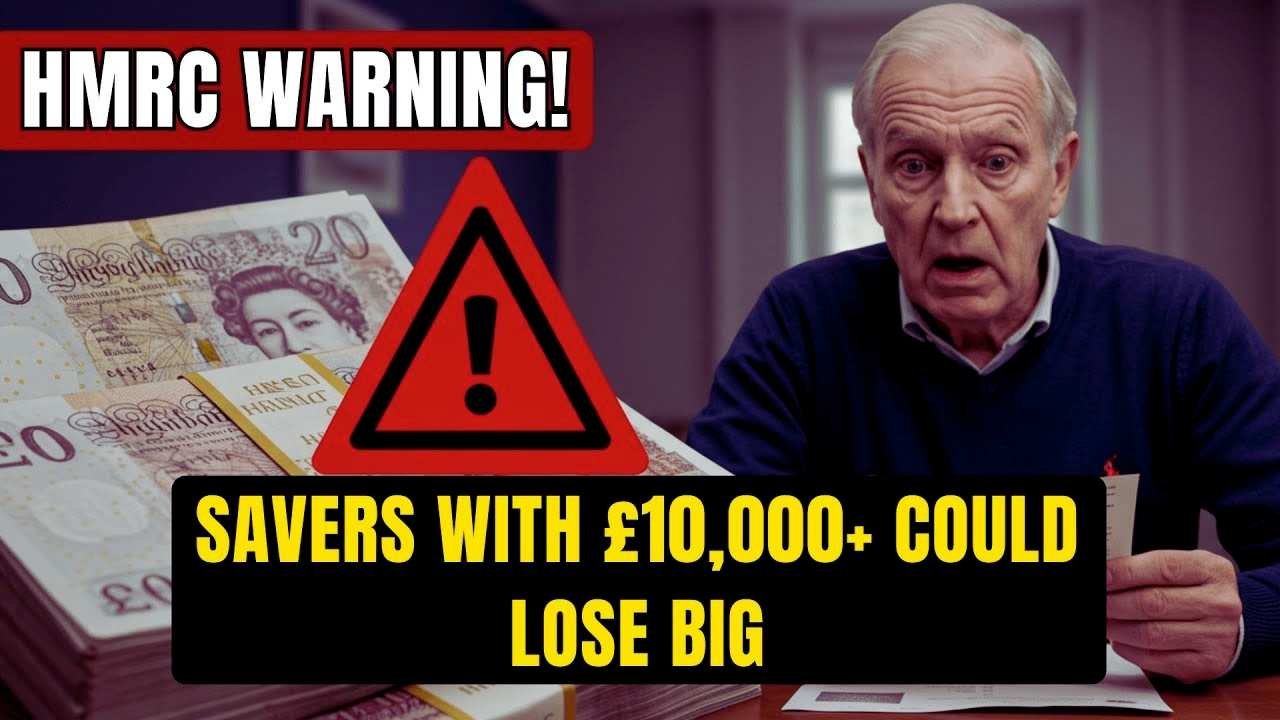UK savers with more than £10,000 in the bank got a wake-up call from HM Revenue and Customs (HMRC) in early 2025. With interest rates climbing, many are earning more from their savings, but that could mean a surprise tax bill. HMRC’s latest update warns that folks might owe tax if their savings interest goes over the Personal Savings Allowance (PSA). This news is a big deal for anyone with a decent chunk in savings accounts, especially as banks report interest straight to HMRC. Here’s what you need to know to avoid a shock when tax time comes.
Why HMRC Is Sounding the Alarm
Higher interest rates are great for savers, with some accounts now offering 4% to 5% returns. But there’s a catch: more interest means more people are hitting the PSA limit, where tax kicks in. HMRC says around 2.64 million people will owe tax on their savings interest in the 2025/26 tax year, up from just 647,000 a few years ago. Banks send HMRC details of your interest automatically, so there’s no hiding it. If you’re not careful, you could get a letter or a tweaked tax code demanding extra cash.
Who Needs to Worry About This
The PSA depends on your income tax band. Here’s how it works:
- Basic rate taxpayers (earning up to £50,270) get £1,000 of interest tax-free.
- Higher rate taxpayers (earning £50,271 to £125,140) get £500 tax-free.
- Additional rate taxpayers (over £125,140) get no allowance, so all interest is taxed.
If you’ve got £10,000 in a 5% savings account, that’s £500 in interest, enough to hit the limit for higher rate taxpayers. Basic rate folks need about £20,000 to reach their £1,000 cap. If you’ve got multiple accounts, it adds up fast.
How to Check If You Owe Tax
Don’t wait for a letter from HMRC. You can stay ahead by checking your savings interest now. Look at your bank statements to see how much interest you earned from April 6, 2025, to April 5, 2026. Compare it to your PSA based on your tax band. You can also log into your Personal Tax Account on GOV.UK to see what HMRC knows about your interest. If you’re employed or get a pension, HMRC might adjust your tax code to collect the tax. If your interest tops £10,000, you’ll likely need to file a Self Assessment tax return.
| Tax Band | PSA Limit | Savings at 5% to Hit Limit |
|---|---|---|
| Basic Rate | £1,000 | £20,000 |
| Higher Rate | £500 | £10,000 |
| Additional Rate | £0 | Any amount |
Ways to Keep Your Money Tax-Free
You don’t have to hand over your hard-earned interest. Here are some smart moves:
- Use a Cash ISA: Up to £20,000 a year can go into an ISA, and all interest is tax-free.
- Try Premium Bonds: Prizes are tax-free, so they’re a safe bet for extra savings.
- Split with a partner: If one of you earns less, move savings to their name to use their PSA.
- Check your tax band: Pension contributions or charity donations can lower your income, boosting your PSA.
These steps can keep your savings safe from HMRC’s reach.
Don’t Ignore the Warning
Ignoring HMRC could mean penalties, extra interest, or even a tax audit. If you get a tax bill or a P800 form saying your tax code’s changed, act fast. Check the numbers, pay up if it’s correct, or call HMRC if something looks off. A tax advisor can help if you’ve got lots of accounts or a tricky situation. With 3.35 million people expected to face savings tax in 2025, staying on top of your finances is key. Check your savings now and use tax-free options to keep more of your money.
